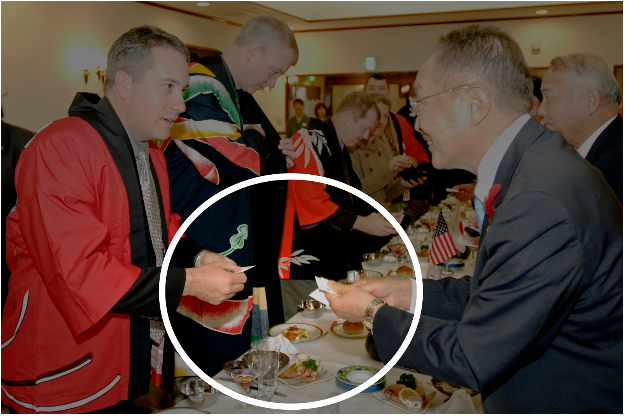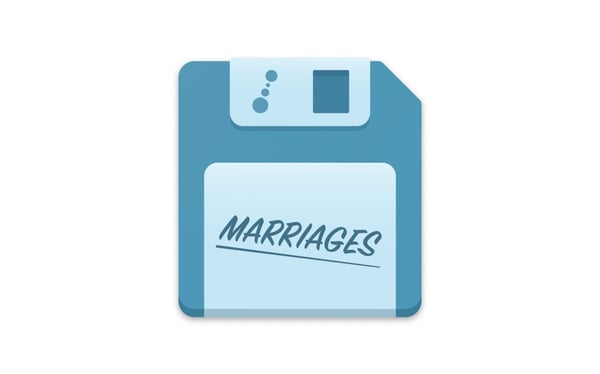How To Grow Your Business Internationally
Doing business abroad is extremely different from doing so in an English-speaking country. From a simple business card exchange to a full-fledged presentation, we’ve got some tips and tricks that will help you thrive when doing business abroad.
Learning English (Again)
The first obstacle you are likely to encounter is a language barrier. While English is the most commocnly used language for business communications, there are still several nuances to consider. The English language is full of inconsistencies that cause non-native speakers to struggle with speaking and understanding the language.
Besides pronunciation, conjunctions and idioms are two very important things to consider when approaching international sales. Here’s a fun little list to remind you how strange our language is.
An idiom is a group of words established by usage as having a meaning not deducible from those of the individual words, meaning that you cannot understand the phrase from its literal meaning. As you can imagine, it is incredibly difficult for non-native English speakers to understand idioms because they have never been exposed to phrases such as “It’s raining cats and dogs” or “You’re pulling my leg” because they will understand them only at face value. The same way that ““Ocean thousand mountain thousand”, a Japanese idiom, most likely means nothing to you. To avoid this confusion, avoid idioms at all costs.
In addition to adjusting our language so that it is more easily understood by clients or customers, it is also important to do your research.
Learn basic pleasantries in their native language, but be warned— do not butcher them. Look up phrases on Youtube, Google Translate or Rosetta Stone to make sure you pronounce them as correctly as possible. This can be a little risky, but if you master the pronunciation as well as you can, your client is likely to be very impressed. If not by your pronunciation, at least by your effort.
Learn cultural norms, business-related or not. As a sales rep doing business in another country, you should be aware of your body language. In some cultures, gestures like pointing fingers or crossing your legs might be seen as rude or it could just have a completely different meaning than it has for you.
Making a joke to break the ice might seem like a good idea at times, but it can offend your business partner when he or she is from a different culture and doesn’t share the same kind of humor. Jokes usually don’t translate well so, like idioms, just avoid them entirely.
In the US, for example, people tend to have a very direct and open attitude when it comes to business. There’s a reason other countries view people from the US as gun-tooting boisterous, careless Patriots. Not because they necessarily are, but because customs that are commonplace can come off and overbearing and impolite in many other countries. While some like engaging with their business partners, doing small talk before starting the sales talk and keeping a friendly atmosphere during the meeting, others do not.
This article from Business Insider discusses 25 common American customs that are considered offensive in other countries. However, be sure to do your own research of the country or even the specific city you will be visiting.
Doing Business in China
When you travel to China, you will notice that business is done very differently and you have to adapt in order to make a good impression and close the deal. First of all, make sure you know how to pronounce their name correctly and address them with their formal title such as Mr. or Mrs. Be very respectful and listen carefully until they’re done. They consider it to be very impolite if you interrupt them during their presentation or sales talk.
Also, Americans tend to be very enthusiastic during a sale but this doesn’t come across very well in China. Stay calm and reserved, even if you are very excited about your product and your new business relationship.
Body language and gestures are very important for communication and brings across a big part of the message, more than the actual words, even down to exchanging business cards. A business card exchange (or handing someone anything fairly small) should be done, in both China and Japan, with two hands, like so:

They are also very traditional in terms of business procedures and rituals, and place a high value on interpersonal relationships. Americans in turn usually establish many relationships but fewer intimate ones. Chinese are also more collectivistic compared to Americans, meaning that they see themselves as part of the team more than as an individual.
Doing Business in Europe
In Europe, you will realise that there are many differences between the countries and regions regarding the way of doing business. For example the southern countries, such as Italy, Portugal, Spain and France, have a very casual and laid-back attitude in business meetings and usually establish very personal relationships. Body language plays a big role, as it communicates a lot of context. Americans are used to a simple handshake and very much respect the personal space, so when you are in southern Europe, you should be prepared for a little more physical contact.
However, in Germany, Switzerland and Scandinavian countries, people are more formal, direct and all about the facts when it comes to doing business. Keep small talk to a minimum and absolutely be on time to meetings.
CurrencyFair offer amazing rates and low fees for businesses that need to send money overseas - see how your business can save on its international payments.
How Sales Apps Can Help You
As in the U.S., wherever you travel to sell your product or service, you are more likely to seal the deal if you establish a good relationship by showing your awareness and capabilities. Besides the cultural differences that you have to consider, it’s crucial to stay organised when you have many different customers all around the globe. It’s easy to get confused when you have multiple meetings in one day - especially when they’re in another language!
There are a lot of great tools out there that help you to work more efficiently and to get more done during a day. Many of the aforementioned cultures greatly value organisation, and sales applications do exactly that, whether you’re in the U.S. or overseas.
Your phone is your lifeline overseas. That’s why it’s important to rent or buy a mobile hotspot and a local SIM card so that you don’t lose access to the customer data in your sales tools. Using a sales tool or app can save you a lot of time and hassle when selling overseas so that you spend more time focusing on the actual meetings and on building new valuable relationships.
For example, the sales routing app Badger Maps, lets you plan, optimise and schedule your daily routes and customer visits. You can capture data in the moment and make notes about your client - such as whether they showed interest in a particular product line or not, specific aspects of your product they were interested in, or any information that might be helpful for your next meeting with them.
Having an organised sales route is especially important in a foreign territory. Sales tools help you stay on task in unfamiliar areas. A GPS can visualise your customers and help bypass some of the confusion that comes along with navigating new territory.
Apps can show you where the leads are located, what they specialise in, their contact information and more, so you never miss opportunities abroad.
Doing business in a foreign country doesn’t have to be difficult. Learning how to sell in different cultures might be the ultimate test for a salesperson, but it’s also a very enriching experience that is well-worth investing in.








.png?width=600&name=Untitled%20design%20(6).png)


.png?width=600&name=Red%20Navy%20Blue%20Real%20Estate%20Marketing%20Instagram%20Post%20(1700%20x%20500%20px).png)
